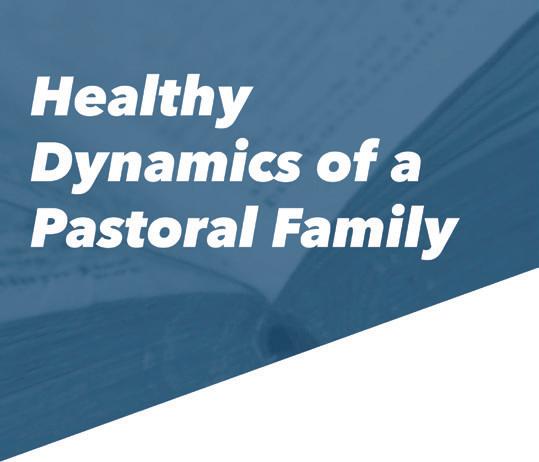
7 minute read
We Preach Christ
anticipates the fnal victory that Jesus, our King, will have as he defeats the forces of evil, sin and death (19:11–16).14 This is why most exegetes agree in affrming that the center of Jesus' message and activity was the immediate coming or arrival of the reign of God, together with the transformation that God demands for this reign to be put into practice.
The Threefold Offce of Jesus Christ and the Flag of the Church of God of Prophecy
Let us look closely at the powerful Christological symbols we fnd on the fag of the Church of God of Prophecy, which point to the threefold offce of Jesus Christ over his church. First, the white on the fag represents the purity and holiness of Jesus—the purity, holiness, and perfection of his threefold offce, specifcally in his roles as teacher (prophet), savior (High Priest) and ruler of the whole universe and the church (King of kings).
The color blue represents the truth and loyalty of Christ and the church, which is the body of Christ and pillar and support of the truth. It also emphasizes that Christ continues being today the prophet par excellence. Jesus was more than a prophet; he was the fulfllment of all the prophecies of the past. He came into the world to speak God's fnal words about the good news of our salvation. As the writer to the Hebrews declares, “God, who at sundry times and in divers manners spake in time past unto the fathers by the prophets, hath in these last days spoken unto us by his Son” (1:1–2).
Christ commissioned the apostles, as well as the church in general, to continue proclaiming the gospel (Matthew 28:18–20; John 20:21–23). Today, the church proclaims the truth of the gospel to all nations: “Christ is the message, and the church is the messenger.” The church carries out its ministry of “reconciling the world to Christ” and thus fulflls its prophetic mission, until the day when the Lord will “bring unity to all things in heaven and on earth under Christ” (Ephesians 1:10 NIV). Hence the idea of the blue stripes, which are not yet united, remind us that we are called to “make every effort to keep the unity of the Spirit through the bond of peace” (Ephesians 4:3 NIV).
The red on the Church of God of Prophecy fag represents Jesus Christ as the great High Priest. It represents the blood of Jesus Christ that was shed for all humanity, regardless of ethnicity, color, religious creed, etc. Christ offered himself as the sacrifce for sins. Paul writes, “For there is one God and one mediator between God and mankind, the man Christ Jesus, who gave himself as a ransom for all people” (1 Timothy 2:5–6 NIV). No other sacrifce would do; one sinful human cannot ransom another. As the psalmist writes, “No one can redeem the life of another or give to God a ransom for them” (Psalm 49:7 NIV). Only the sinless God-Man could atone for the sins of the world. Today, Jesus still acts as a priest, interceding for us at the right hand of God the Father in heaven, thus guaranteeing our right to be heard.
Continued from page 15
Likewise, the color purple represents Jesus’ royalty, which is seen with greater emphasis in the symbols of the scepter, the star, and the crown. The purple also points to his loyalty; it allows us to see Christ fulflling for us the law of God (Galatians 4:4–5). We call this active obedience. He also allowed himself to be punished for the sins of the whole world (2 Corinthians 5:21; Galatians 3:13), which we call passive obedience. Jesus, in both his active and passive obedience, acted as our substitute (Isaiah 53:4, 6). He is our King, and he is also the ruler of the universe.
In the symbols on the fag—the scepter, the star, and the crown—we observe a clear representation of the kingship and majesty of our Lord Jesus Christ as the King of kings and Lord of lords. Jesus is the sovereign monarch of a kingdom. That kingdom is God's presence and rule over the world. As children of God, we will always need spiritual discipline, guidance, and government. We are not autonomous, even after our conversion. We have no right to govern ourselves, nor could we do so successfully. Christ supplies this need through the dominion he lovingly exercises over us in the church. He is also sovereign over all nations.
Finally, I quote the words of the theologian Charles Hodge, in relation to the threefold offce of Jesus Christ: We are enlightened in the knowledge of the truth; we are reconciled to God by the sacrifcial death of his Son; and we are delivered from the power of Satan and introduced into the kingdom of God; all of which presupposes that our Redeemer is to us at once a prophet, a priest, and a king. This is not, therefore, simply a convenient classifcation of the contents of his mission and work, but it enters into its very nature, and must be retained in our theology if we would take the truth as it is revealed in the Word of God.15
1 Translated into English from Justo González, Diccionario manual teológico (Barcelona: CLIE, 2010), 72.
2 “Declaración de fe,” The Church of God of Prophecy, accessed April 5, 2023, https://iglesiadediosprofecia.org/sobre-nosotros-2/doctrina/ (English version, https://cogop.org/about/doctrine/).
3 Translated into English from Casiano Floristán, Teología práctica (Salamanca: Ediciones Sígueme, 1998), 32.
4 Raymond E. Brown, Introducción a la cristología del Nuevo Testamento (Salamanca: Ediciones Sígueme, 2005), 15 (English edition, 3).
5 James Montgomery Boice, in Foundations of the Christian Faith, mentions that Martin Luther was perhaps the frst to teach explicitly that Christ was a prophet, a priest, and a king, although he never spoke of a “threefold function,” Los fundamentos de la fe Cristian (Miami, FL: Editorial Unilit, 1996), 318.
6 Translated into English from Alberto L. García, Cristología: Cristo Jesús: centro y praxis del pueblo de Dios (St. Louis, MO: Editorial Concordia, 2006), 94.
7 AcademiaLab, accessed April 5, 2023, https://academia-lab.com/enciclopedia/ triple-ofcio-de-cristo/.
8 Translated into English from Pablo A. Jiménez, “Profeta, Sacerdote & Rey: El Triple Ofcio de Cristo,” April 12, 2016, https://www.drpablojimenez.com/2016/12/04/ profeta-sacerdote-rey-el-triple-ofcio-de-cristo/.
9 Jiménez, “Profeta, Sacerdote & Rey.”
10 Floristán, Teología práctica, 41.
11 Floristán, Teología práctica, 41.
12 Jiménez, “Profeta, Sacerdote & Rey.”
13 Floristán, Teología práctica, 38–39.
14 Jiménez, “Profeta, Sacerdote & Rey.”
15 Charles Hodge, Systematic Theology II, quoted in James Montgomery Boice, Los Fundamentos de la fe cristiana (Miami, FL: Editorial Unilit, 1996), 304 (English edition, 296).
Ministers
James Austin
Alabama
March 7, 2023
Licensed minister for 37 years
Ruth Ann Smith


Bermuda
February 15, 2023
Licensed minister for 38 years
Homer Buford Edwards
North Carolina
March 27, 2023
Licensed minister for 62 years
Willie Williams
North Carolina
March 3, 2023
Licensed minister for 34 years
Albert Les Hitchcock
Wyoming
March 12, 2023
Licensed minister for six years
Lonnie J. Grimsley
South Carolina
January 6, 2023
Licensed minister for 53 years
Thomas Bruce Mericle
Tennessee
March 16, 2023
Licensed minister for 52 years
Robert L. Broach
South Carolina
March 23, 2023
Licensed minister for 40 years
Continued from page 19 during a family vacation, when a crisis occurs in a member’s life. Sometimes these occurrences are urgent and require immediate attention. At other times, situations arise that are important, but made to feel urgent, causing added strain on the family. Pastors’ spouses and children can recount various instances that have robbed them of precious family time.

Digital Pressures
The demand for the pastor’s time is further complicated by the fact that we live in a digital world where there is an expectation to “always be on.” While there are positive aspects to digital media technology, “always being on” causes changes in our brain processing that impacts our focus, productivity, personal interactions, and spiritual lives. This begs the question of how much “screen time” the pastor should have in his role as pastor and leader of the pastoral family. For example, the pastor is expected to be always available and accessible by phone, email, social media, etc. There needs to be an understanding with the congregation that only emergencies will be responded to after a certain hour, on sabbaths, and on vacation days. Pastors should set boundaries with members on social media, texting, and with email that after a certain time the pastor will not respond; emergencies are not to be put on social media platforms but should be in the form of a phone call. Similarly, the pastor also has to resist the urge to constantly check-in once these boundaries are established as they are also robbing the family of precious quality time.
Living in a Fishbowl
The fshbowl experience (or another expression often used is “living in a glass house”) describes a family’s lack of privacy, or the feeling of always being watched or scrutinized by the congregation. Stated another way, it is feeling like the congregation believes they are entitled to every aspect of the family’s life and makes judgements about what’s taking place on the inside by looking in from outside.
In a recent study conducted by Lifeway Research, 49 percent of pastors’ spouses agreed that their family lives in a fshbowl. This same percentage also agreed that if they were honest at church about their prayer needs, those needs would become gossip. The fshbowl experience results from ambiguous boundaries and unclear expectations. Consider the following fshbowl experiences :
• One clergy child spoke of the church member who rang the doorbell to the parsonage only to reprimand him for standing on a sofa while wearing shoes.
• Other clergy children reported incidences where parishioners [church members] would simply walk into the parsonage unannounced and unanticipated.
A fshbowl experience can be very stressful for the pastoral family and leads to isolation and loneliness, as well as mental health issues.
Managing congregational expectations and boundaries can be challenging, but, when properly attended to, there is a positive impact on the pastoral family. For example, the pastor’s flexible schedule enables him to adjust to the needs of the family. In doing so, the pastor is able to communicate to the family that they are his first priority. Likewise, a disciplined pastor will protect his family time and exposure to church issues and conflict by establishing parameters for his time, as well as congregational access to and expectations for his family. Children will also learn ethics of confidentiality based on how church conflict is discussed and managed in the home by the pastor and spouse.

1 Peter Scazzero, Emotionally Healthy Spirituality Workbook, Updated Edition: Discipleship that Deeply Changes Your Relationship with God (Grand Rapids, MI: Zondervan, 2017), 48.
2 Scazzero, 48.
3 Cameron Lee, "Specifying Intrusive Demands and Their Outcomes in Congregational Ministry: A Report on the Ministry Demands Inventory," Journal for the Scientifc Study of Religion 38, no. 4 (1999).
4 Bruce Hardy, "Pastoral Care with Clergy Children," Review & Expositor 98, no. 4 (2001): 548.
5 Hardy, 549.
6 Laurel Dovich, "Digital Media Technology and Your Spiritual Life: An Uneasy Alliance," Christian Engineering Conference (2017), https://digitalcommons.cedarville.edu/cgi/viewcontent. cgi?article=1010&context=christian_ engineering_conference.
7 “Pastor Spouse Research Study: Survey of 722 American Pastor Spouses,” Lifeway Research (2017), http://lifewayresearch.com/wp-content/ uploads/2017/09/ Pastor-Spouse-Research-Report-Sept-2017.pdf.
9 Hardy, 549.
10 Hardy, 549.










